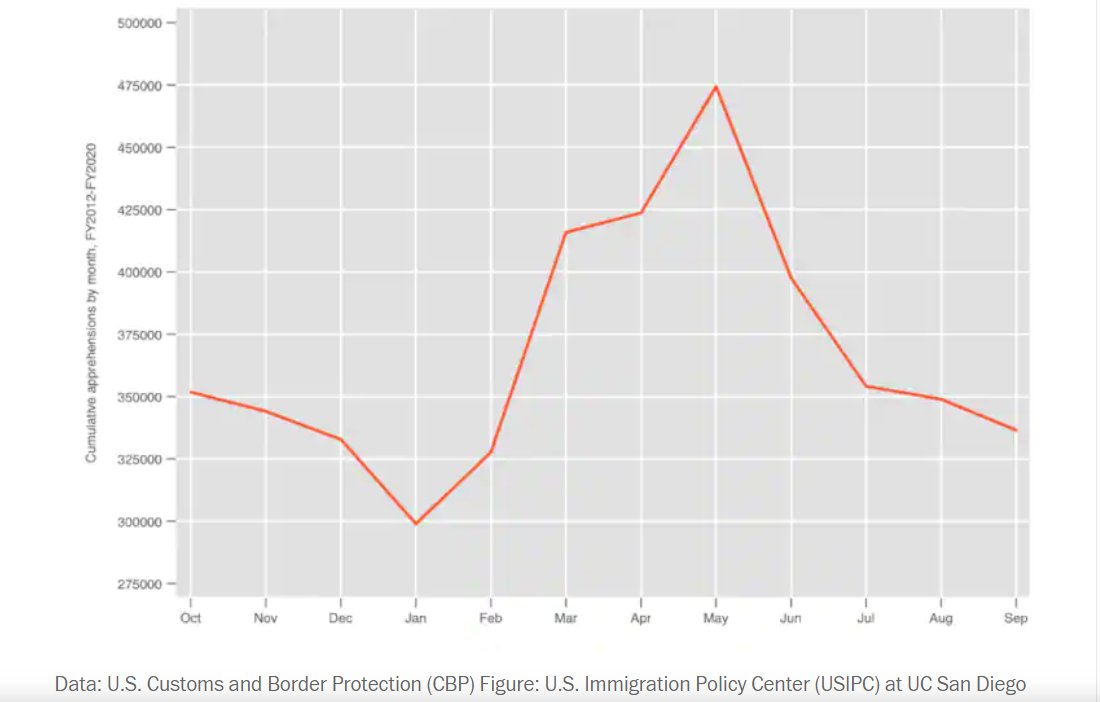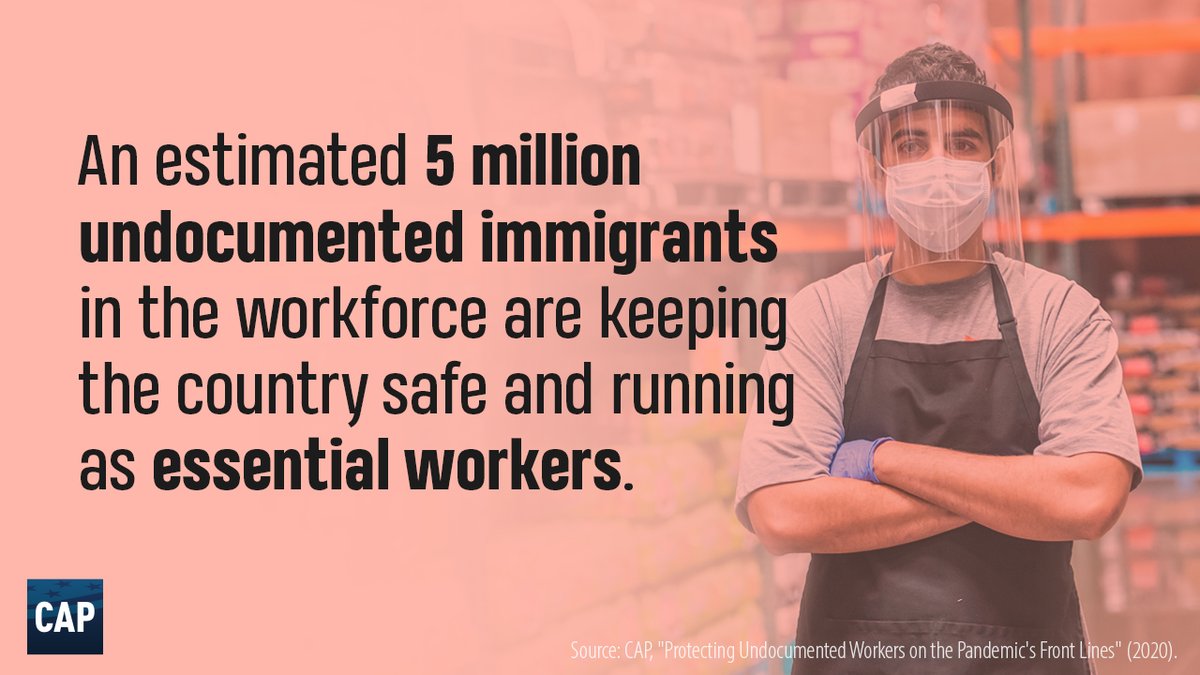
"The current increase in apprehensions at the US border fits a predictable pattern of seasonal changes in undocumented immigration combined with a backlog of demand because of 2020’s coronavirus border closure."
Analysis by CAP Senior Fellow @TomWongPhD:
americanprogress.org/issues/ext/202…
Analysis by CAP Senior Fellow @TomWongPhD:
americanprogress.org/issues/ext/202…
This data analysis published in @washingtonpost @monkeycageblog takes a look at monthly @CBP data on apprehensions at the southern border from 2012 to now.
The researchers found no "crisis" or "surge" attributed to Biden administration policies.
The researchers found no "crisis" or "surge" attributed to Biden administration policies.
CBP recorded a 28 percent increase in migrants apprehended from January to February 2021, from 78,442 to 100,441.
News outlets, pundits and politicians have been calling this a “surge” and a “crisis.”
News outlets, pundits and politicians have been calling this a “surge” and a “crisis.”
The numbers reveal that undocumented immigration is seasonal, shifting upward this time of year.
During FY 2019, under the Trump administration, total apprehensions increased 31 percent during the same period, a bigger jump than what we’re seeing now.
During FY 2019, under the Trump administration, total apprehensions increased 31 percent during the same period, a bigger jump than what we’re seeing now.
The analysis compares FY 2021 to FY 2019 because the pandemic changed the pattern in 2020.
In FY 2018, the increase is about 25 percent from February to March — somewhat smaller but still pronounced.
In FY 2018, the increase is about 25 percent from February to March — somewhat smaller but still pronounced.
The figure below combines data from FY12 to FY20 to show the cumulative total number of apprehensions for each month over these 8 years.
Migrants start coming when winter ends and the weather gets a bit warmer. There's a sharp drop-off in summer when the desert is deadly.
Migrants start coming when winter ends and the weather gets a bit warmer. There's a sharp drop-off in summer when the desert is deadly.

"What we’re seeing, in other words, isn’t a surge or crisis, but a predictable seasonal shift.
When the numbers drop again in June & July, policymakers may be tempted to claim that their deterrence policies succeeded. But that will just be the usual seasonal drop."
When the numbers drop again in June & July, policymakers may be tempted to claim that their deterrence policies succeeded. But that will just be the usual seasonal drop."
.@CBP has reported apprehending more migrants in February 2021 than in the same month in previous years.
Data indicates that too doesn’t mean it’s a surge or a crisis.
Data indicates that too doesn’t mean it’s a surge or a crisis.
Due to the pandemic in 2020, movement dropped dramatically as countries closed their borders.
In the US, the Trump administration invoked Title 42 to summarily expel migrants attempting to enter the country without proper documentation.
cbp.gov/newsroom/stats…
In the US, the Trump administration invoked Title 42 to summarily expel migrants attempting to enter the country without proper documentation.
cbp.gov/newsroom/stats…
In FY 2021, it appears that migrants are continuing to enter the US in the same numbers as in FY 2019 — plus the pent-up demand from people who would have come in FY 2020, but for the pandemic.
This suggests that Title 42 expulsions delayed prospective migrants rather than deterred them — and they’re arriving now.
Nearly three decades of research in political science finds that border security policies do not necessarily deter migration; rather, they delay migrants’ decisions to travel, and change the routes they take — often to even more life-threatening ones.
globalmigration.ucdavis.edu/prevention-det…
globalmigration.ucdavis.edu/prevention-det…
Focusing on month-to-month differences in apprehensions is misleading; given seasonal patterns, each month should be considered in relation to the same month in previous years.
Knowing those patterns, policymakers may be better able to plan, prepare and to manage the border.
Knowing those patterns, policymakers may be better able to plan, prepare and to manage the border.
• • •
Missing some Tweet in this thread? You can try to
force a refresh





